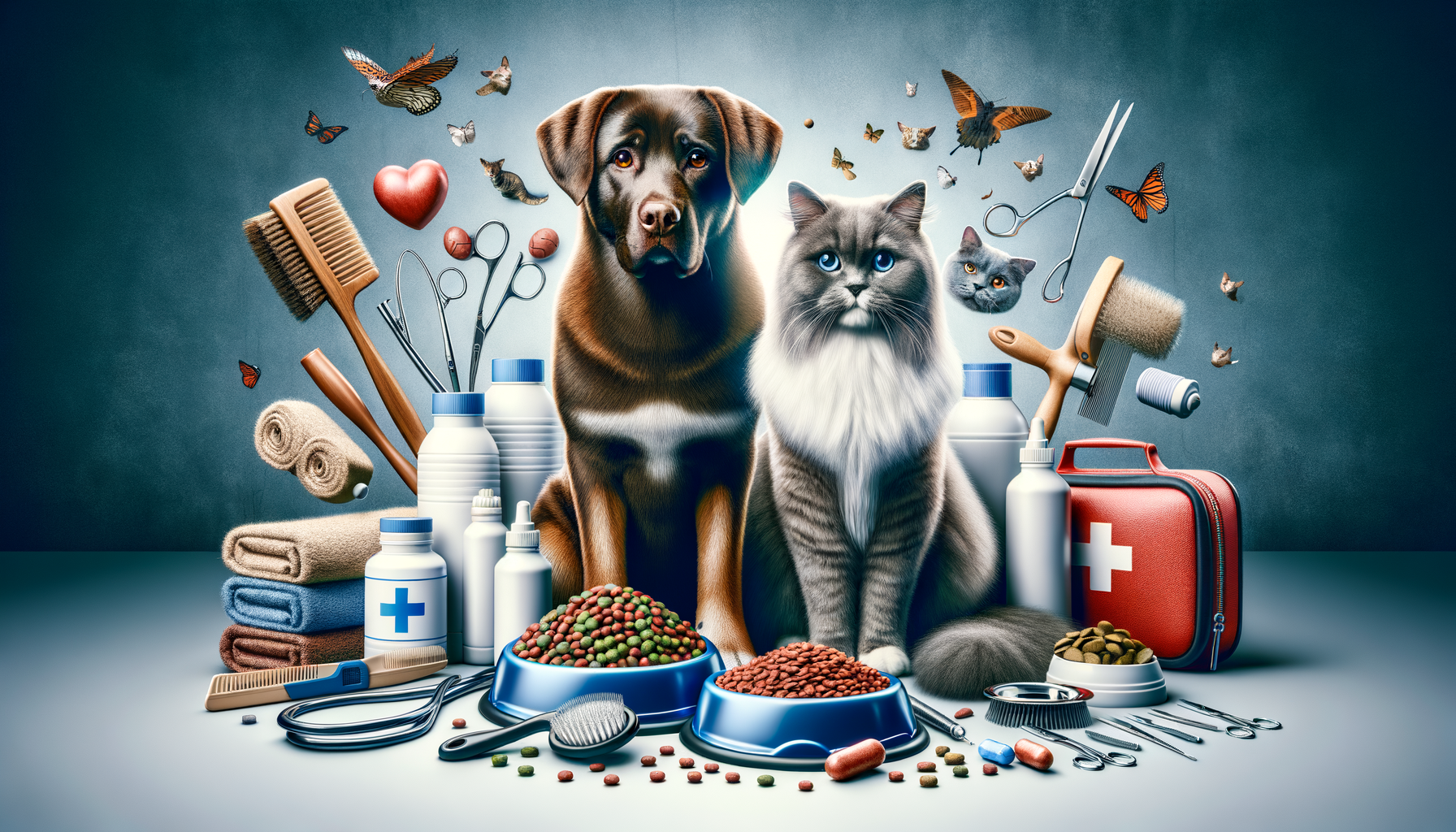
Explore Pet Health,Care, Grooming and Nutrition Options!
The Importance of Regular Veterinary Check-Ups
Regular veterinary check-ups are crucial for maintaining your pet’s health. These visits allow veterinarians to monitor your pet’s overall well-being, detect early signs of illness, and provide preventive care. Routine examinations can include vaccinations, dental care, and screenings for common diseases. By ensuring your pet receives timely medical attention, you can prevent potential health issues from escalating, ultimately saving on costly treatments in the long run.
Moreover, veterinary check-ups are an opportunity for pet owners to discuss any concerns or questions they may have regarding their pet’s health. Veterinarians can offer valuable advice on nutrition, exercise, and behavior management, tailored to your pet’s specific needs. This holistic approach to pet care ensures that your furry friend remains healthy and happy throughout their life.
In addition, regular check-ups help in maintaining an up-to-date record of your pet’s health history. This information is invaluable in case of emergencies or when seeking specialist care. Overall, prioritizing veterinary check-ups is an essential aspect of responsible pet ownership, contributing significantly to the longevity and quality of your pet’s life.
Grooming: More Than Just Aesthetic Appeal
Grooming is often perceived as a purely aesthetic activity, but it plays a vital role in your pet’s health and well-being. Regular grooming sessions help in maintaining your pet’s coat and skin health, preventing matting, and reducing the risk of skin infections. For pets with long fur, grooming is essential to prevent tangles and mats that can lead to discomfort and skin irritations.
Beyond coat maintenance, grooming also involves cleaning your pet’s ears, trimming their nails, and brushing their teeth. Each of these activities contributes to your pet’s overall health. For instance, regular ear cleaning can prevent infections, while nail trimming reduces the risk of injury from overgrown nails. Dental care is equally important, as it helps in preventing periodontal diseases that can affect your pet’s overall health.
Grooming sessions also provide an excellent opportunity for pet owners to check for signs of parasites such as fleas and ticks. Early detection and treatment of these pests can prevent more serious health issues. Additionally, grooming can be a bonding experience between you and your pet, enhancing your relationship and providing a sense of comfort and security for your furry friend.
Nutrition: The Foundation of Pet Health
Nutrition is the cornerstone of your pet’s health. A balanced diet provides the essential nutrients needed for growth, energy, and overall well-being. It’s important to choose pet food that meets the specific dietary needs of your pet, taking into account their age, size, and activity level. High-quality pet foods are formulated to provide a complete and balanced diet, ensuring that your pet receives all the necessary vitamins and minerals.
In addition to commercial pet foods, some pet owners opt for homemade diets. If you choose this route, it’s crucial to work with a veterinarian or a pet nutritionist to ensure that your pet’s nutritional requirements are met. Homemade diets should be carefully balanced to avoid deficiencies or excesses that could harm your pet’s health.
Feeding your pet the right amount of food is equally important. Overfeeding can lead to obesity, which is a significant health concern for pets. Obesity increases the risk of various health issues, including diabetes, heart disease, and joint problems. Regularly monitoring your pet’s weight and adjusting their food intake accordingly can help maintain a healthy weight and prevent related health issues.
Exercise and Mental Stimulation: Key to a Happy Pet
Exercise is vital for maintaining your pet’s physical health and preventing obesity. Regular physical activity helps in strengthening muscles, improving cardiovascular health, and enhancing flexibility. Depending on your pet’s breed and age, the type and amount of exercise required may vary. For instance, high-energy breeds may require more vigorous activities, while older pets may benefit from gentler exercises.
Apart from physical exercise, mental stimulation is crucial for your pet’s well-being. Engaging your pet in activities that challenge their mind can prevent boredom and reduce the risk of behavioral problems. Puzzle toys, training sessions, and interactive games are excellent ways to provide mental enrichment for your pet.
Combining physical exercise with mental stimulation not only keeps your pet healthy but also strengthens the bond between you and your furry friend. Regular playtime and training sessions can improve communication and trust, making your relationship more rewarding. Ultimately, a well-exercised and mentally stimulated pet is a happy pet, contributing to their overall quality of life.
The Role of Socialization in Pet Development
Socialization is a critical aspect of pet development, particularly for young animals. Introducing your pet to various environments, people, and other animals can help them develop confidence and reduce fear or aggression. Early socialization is essential for puppies and kittens, as it lays the foundation for their behavior as adults.
Socializing your pet involves exposing them to different experiences in a controlled and positive manner. This can include visits to the park, meeting other pets, or attending training classes. These experiences help your pet learn how to interact appropriately with others and adapt to new situations.
For adult pets that may have missed early socialization opportunities, it’s still possible to help them adjust and learn. Patience and gradual exposure to new experiences can aid in building their confidence. Socialization is not only beneficial for your pet’s behavior but also enhances their overall happiness and reduces stress, making it an integral part of comprehensive pet care.


